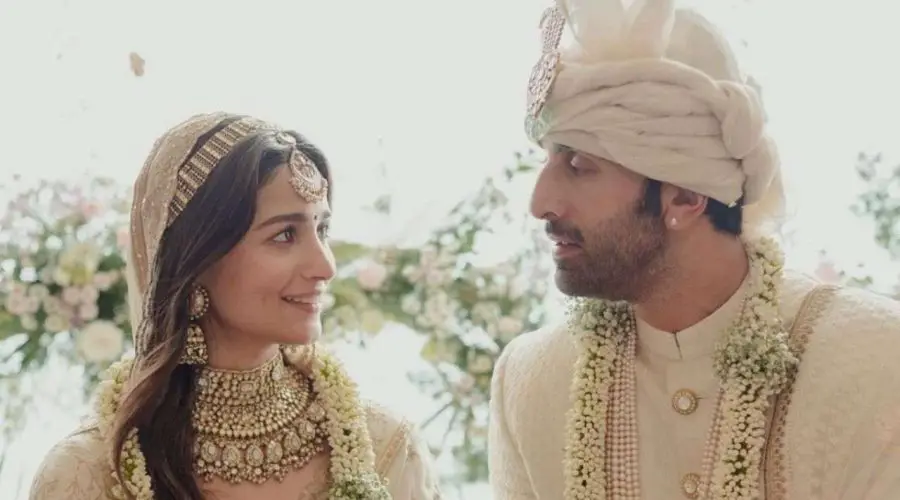Ranbir and Alia only took 4 Pheras in their Marriage Want to Know Why?
In a recent media byte, Alia Bhatt’s brother Rahul Bhatt claimed that the pandit, who was a regular at the Kapoors’ ceremonies, insisted on Ranbir and Alia doing four pheras instead of seven.
What appears to be strange has a lot of meaning in Indian marital traditions..
In Indian marriage rites, pheras play a crucial part. The seven pheras are the seven promises made by the groom and bride to each other for the rest of their lives together.
These pheras bind the newlyweds together in a sacred link that binds them as each other’s spouses in all circumstances.
Every Hindu wedding has at least four pheras, each of which has a unique meaning and is linked to the four Purusharta or great pearls of life wisdom: Dharma, Artha, Kama, and Moksha.
What is Dharma?
Dharma refers to the proper way of life and devoting oneself to the truth. Dharma guides mankind down the proper path and helps them discover their life’s purpose, allowing them to become better people. Dharma also provides you with stability, order, righteousness, and harmony.
What is Artha ?
Artha is the comfort of knowing that you have all you need to live in peace. It also refers to a positive mindset in which one is pleased with what one has. Artha also refers to the need and right to have sufficient material assets to support oneself and one’s family.
What is the Kama ?
The Kama represents human desire and pleasure at its most basic level. The Kama is a term that refers to sexual pleasure, love, and enjoyment that is produced by passion and intimacy in your life. If used in moderation, Kama can aid in the discovery of one’s Dharma. However, as it grows stronger, unpleasant emotions such as greed, desire, and addiction take over.
What is Moksha?
Moksha is all about being yourself. You become disciplined, sparked by a mind of purity and patience when you adhere to other ways of living and are on par with your Dharma. You don’t want to waste your time chasing after luxuries, harming others, or anticipating things that are out of your reach. You gradually accept your inner self and learn to be content with what you have.


